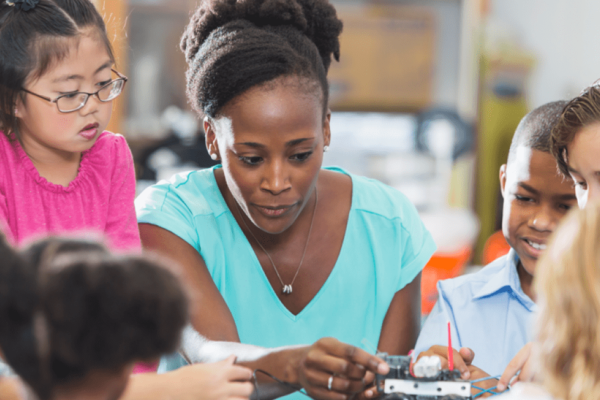Introduction to Early Childhood Education
As a parent, I understand the importance of providing a strong foundation for my child’s future. One crucial aspect that cannot be overlooked is early childhood education. Early childhood education refers to the education of children from birth to the age of eight. During this critical period, children’s minds are like sponges, absorbing information and experiences at a rapid pace. In this article, I will explore the numerous benefits of early childhood education and how it can unlock the potential of our children.
The Importance of Early Childhood Education
Early childhood education sets the stage for a child’s lifelong learning journey. It is during these early years that children develop essential skills and abilities that will shape their future academic and personal success. Research has consistently shown that children who receive quality early childhood education are more likely to perform well academically, have higher self-esteem, and exhibit better social skills. By investing in early childhood education, we are investing in the future of our children and society as a whole.

Key Benefits of Early Childhood Education
Cognitive Development in Early Childhood Education
Early childhood education plays a crucial role in fostering cognitive development in children. During these formative years, children’s brains are rapidly developing, forming neural connections that will shape their ability to think, reason, and problem-solve. Quality early childhood education programs provide a stimulating environment that encourages curiosity, exploration, and critical thinking. Through activities that promote cognitive development, such as puzzles, storytelling, and hands-on experiments, children develop the foundation for future academic success.
Social and Emotional Development in Early Childhood Education
In addition to cognitive development, early childhood education also focuses on nurturing social and emotional skills. Children learn how to interact with others, develop empathy, and regulate their emotions. By engaging in activities that promote cooperation, sharing, and communication, children develop essential social skills that will benefit them throughout their lives. Moreover, early childhood education provides a safe and supportive environment where children can express their emotions, develop self-confidence, and build positive relationships with peers and adults.
Physical Development in Early Childhood Education
Physical development is another crucial aspect of early childhood education. Through play and physical activities, children enhance their gross and fine motor skills, coordination, and overall physical health. Early childhood education programs often include outdoor play, sports, and movement-based activities that promote physical development. By engaging in these activities, children develop strength, balance, and body awareness, setting a foundation for a healthy and active lifestyle.
Language and Literacy Development in Early Childhood Education
Language and literacy skills are fundamental for future academic success. Early childhood education provides a rich language environment where children are exposed to a wide range of vocabulary, stories, and conversations. Through activities such as reading books, singing songs, and engaging in group discussions, children develop their language skills and expand their vocabulary. Moreover, early childhood education introduces children to early literacy concepts, such as letter recognition and phonics, laying the foundation for reading and writing.
The Role of Play in Early Childhood Education
Play is a natural and essential part of early childhood education. Through play, children learn and make sense of the world around them. Play-based learning allows children to explore, experiment, and develop their creativity. It fosters imagination, problem-solving skills, and critical thinking. Early childhood education programs that incorporate play provide children with the opportunity to engage in hands-on, experiential learning, promoting holistic development in various domains.
Early Childhood Education Programs and Approaches
There are various early childhood education programs and approaches that cater to the diverse needs and preferences of children and parents. Some popular approaches include Montessori, Reggio Emilia, Waldorf, and play-based learning. These programs emphasize different aspects of early childhood education, such as child-led learning, hands-on experiences, and nurturing creativity. Choosing the right program for your child involves considering their individual needs, learning style, and your educational philosophy as a parent.

Implementing Early Childhood Education at Home
While early childhood education programs provide a structured and enriching environment, parents also play a crucial role in their child’s education. Implementing early childhood education at home can complement and enhance the benefits of formal education. Parents can create a learning-rich environment by reading books together, engaging in educational games and activities, and fostering a love for learning. Additionally, parents can establish routines, set boundaries, and provide emotional support, creating a nurturing home environment that promotes holistic development.
Challenges and Solutions in Early Childhood Education
Despite the numerous benefits of early childhood education, there are challenges that need to be addressed. One of the challenges is access and affordability. Not all families have equal access to quality early childhood education programs, and the cost of such programs can be prohibitive for many. To overcome this challenge, governments and communities need to prioritize and invest in early childhood education, ensuring that it is accessible and affordable for all children. Additionally, raising awareness about the importance of early childhood education can help garner support and resources.










Comments on " Unlocking the Potential: Exploring the Benefits of Early Childhood Education" :